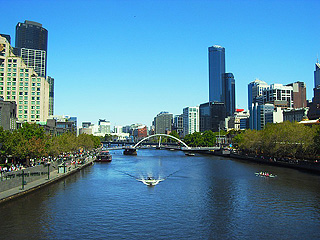Bosnian Birth Certificate Translation
 Melbourne Translation Services provides NAATI translator certified Bosnian birth certificate translation services.
Melbourne Translation Services provides NAATI translator certified Bosnian birth certificate translation services.
A Bosnian birth certificate is an important record that documents the birth of a child. Legally, it is a certified copy of an entry from the official register of births. In almost every country, a person’s birth certificate is a crucial proof of his or her identity that is required in applications for citizenship, driver’s license, social welfare benefits, bank accounts, etc.
In Australia, Melbourne Translation Services certified Bosnian translation services provides fast and affordable Bosnian birth certificate translation by NAATI certified Bosnian translators.
Bosnian NAATI Translator for birth certificate translation
A Bosnian birth certificate typically contains the child’s full name, date of birth, sex, place of birth, the full name(s) of his or her parent(s), and their address and occupations at the time of registration. Other relevant official details may include the name of the hospital where the child was born, the name and signature of the attending doctor, and the name and address of the official register of births. We provide birth certificate translation service, commonly required for immigration purposes.
- There are no hidden charges for fast Bosnian translation by NAATI certified Bosnian translators
- Many happy repeat customers
- We provide discounts for repeat customers or large orders
- NAATI certified Bosnian translators for immigration or legal documents
- Full-time Bosnian translators experienced in translating all kinds of documents
- Personal, friendly service
Bosnian Translation Service Australia-Wide
- Sydney
- Melbourne
- Brisbane
- Perth
- Canberra
- Darwin
- Hobart
- Adelaide
- Wollongong
- Newcastle
- Cairns
More About The Bosnian Language
The modern Bosnian language uses both Cyrillic and Latin alphabet. However, scripts other than Latin were used much earlier, most notably the indigenous Bosnian Cyrillic called Bosančica (literally "Bosnian script") and dates back to the late 10th and early 11th centuries AD. The Humac tablet, one of the oldest Bosnian literacy monuments, is written in this script. The script is of the greatest significance to Bosnian history and linguistics, since it is the one script that is purely native to Bosnia and Herzegovina and is linked to the Bosnian medieval monarchy and the medieval Bosnian religion where it was used abundantly. It can also be found in many royal state documents and as well on old stećaks. The substantial influence of bosančica on medieval Bosnia has unfortunately made it a target of controversial debates and propaganda throughout the history which has led to the tendency of some Croat and Serb philologists and paleographers to deny the exclusivity of association of the script with medieval Bosnian state, and associate it to Croatian and Serbian cultural provenience, despite its geographical origin and the historical prevalence of usage. Other scripts used include: begovica (used by Bosniak nobility) and arebica, or Arabic script adjusted to write Slavic speech, also chiefly used by Bosniak nobility during the Ottoman era.
The irony of the Bosnian language is that its speakers are, on the level of colloquial idiom, more linguistically homogeneous than either Serbs or Croats but they failed, for the historical reasons outlined below, to standardize their language in the crucial 19th century. The first Bosnian dictionary, a rhymed Bosnian–Turkish glossary authored by Muhamed Hevaji Uskufi, was composed in 1631. But unlike e.g. Croatian dictionaries, which were written and published regularly, Uskufi's work remained an isolated foray. At least two factors were decisive:
- The Bosniak elite wrote almost exclusively in foreign (Turkish, Arabic, Persian) languages. Vernacular literature, written in modified Arabic script, was thin and sparse.
- The Bosniaks' national emancipation lagged behind that of the Serbs and Croats, and since denominational rather than cultural or linguistic issues played the pivotal role, a Bosnian language project didn't arouse much interest or support.
Serbia includes the Bosnian language as an elective subject in primary schools. Montenegro officially recognizes the Bosnian language, as its 2007 Constitution specifically states that while Montenegrin is the "official language," also "in official use are Serbian, Bosnian, Albanian and Croatian languages."

Melbourne is the capital and most populous city in the state of Victoria, and the second most populous city in Australia. The Melbourne City Centre is the hub of the greater metropolitan area and the Census statistical division—of which "Melbourne" is the common name. As of June 2010, the greater geographical area had an approximate population of four million. Inhabitants of Melbourne are called Melburnians or Melbournians.
The metropolis is located on the large natural bay known as Port Phillip, with the city centre positioned at the estuary of the Yarra River (at the northernmost point of the bay). The metropolitan area then extends south from the city centre, along the eastern and western shorelines of Port Phillip, and expands into the hinterland. The city centre is situated in the municipality known as the City of Melbourne, and the metropolitan area consists of a further 30 municipalities.

Bosnian Birth Certificate Translation
Upload your documents here for translationOur Valued Clients

